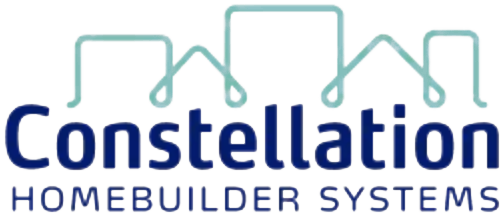Technology
Brookfield Residential CIO Brandon Sharp On Why Data Matters Now
Sharp joins Constellation Homebuilder Systems Paolo Benzan in a deep dive on why clean, realtime, company-wide data may make a crucial difference through a period of turbulence, and the recovery to come.

The way nature abhors a vacuum, the human nature of homebuilders abhors flux. Measures that signal the good- or ill-health of homebuilding operators facing today's challenges – pricing, sales pace, cycle time, costs – are changing at sharply sloped rates.
An operator's risk intensifies or becomes manageable now in direct correlation to the firm's ability to take smart action based by using good judgment based of smart decisions ... where the taproot – as never before been the case in modern homebuilding history – is clear, accurate, real-time data.
Data – when input costs, pricing, construction schedules, supply chain movement, interest rates, consumer sentiment, stock prices, etc. are all bumping through a heavily level of volatility and, yes, flux – has a freshness date, beyond which it either loses value, or worse.
A couple of weeks ago, we had the honor to join two industry thought- and practice leaders in a focus on the power of data – especially now – to enable homebuilders' human network of frontline, backoffice, jobsite, distribution channel, sales team, and headquarters leaders to move as a single, synchronized, information-fueled team through a period of turbulence, whether it's brief or extended.
Brandon Sharp, chief information officer at Brookfield Residential and Paolo Benzan, VP of Data Strategy at Constellation Homebuilder Systems teamed up to share insights that provided a compelling use-case in support of Constellation's new Unified Data platform for homebuilders. You can see and hear the whole conversation here.
We felt it would bring value to excerpt key areas of insight that came through verbatim in Brandon and Paolo's conversation. We've organized them under a few topic headings to aid in your finding what strikes your interest fastest.
A key take-away, folks: Spreadsheets may have been your lifeline in another life. Now, they are your enemy. You'll see why below.
Context: 2022-23 Vs. 2008 Housing Downturn
Paolo Benzan, Constellation Homebuilder Systems
When you think back to 2008-2009… You really needed to have a pulse on a daily basis of what was going on to know how to make the right decision, because if you made the wrong one you were done.
2008 was one lens into the importance of data second lens was the whole COVID event, which was a wake-up call. when you looked at data in the past, it had a natural flow to it…. Felt like there was a rhythm to the data… and then you throw Covid into the mix and you saw everything went upside down and sideways and you started looking at data and it didn’t make sense anymore.
It was a great reminder to those of us working in data to not get too comfortable in how you look at and interpret data, to take another look at it and make sure that what you're measuring and what you’re talking about makes sense to the business, and is actionable to the business… You get comfortable in the rhythm of data, and then you step back from it and let it do its thing… it is a reminder to us on the data side that you really have to be looking at the stuff very often to make sure that the insights you’re gaining are relevant to this time and this place as opposed to what happened back in the past.
On the speed of change and the need for data now
Brandon Sharp, Brookfield Residential
There are a lot of bi-directional signals in the broader markets right now. Great job growth. Yet inflation continues to climb. All sorts of contradictory economic indicators that might send you in different directions to chase that one anecdote or that one data element that really informs the business…
But it’s a combination of things that will inform your business. From a pure internal homebuilder operational perspective, the things you pay attention to, some of them are universal.
We always pay attention to sales activity
Margin activity
Backlog and how fast are we closing backlog
How fast are we building homes….
There’s things that are always there in any market…. But as you move through the different elements of the cycle the different stages of the cycle there becomes the very laser-focused attention on certain things… so that a few of those in the current market
There’s a stockpile of inventory across the North American footprint and builders have more inventory than absorption paces would necessarily indicate would have been the best way to approach our construction cycle … so lots of inventory. We have price movement, we have incentives. We have a higher rate of cancellations speaking broadly across the housing sector…
So, as those things start to show up as the winds changed direction four or five months ago, being able to pivot and bring deeper levels of awareness for those key drivers of your business and having the tools and resources in place so that you can start to focus in and help the business understand and move forward with a specific lens around those things that have now become more important.
Operational Data and Customer Experience
Brandon Sharp, Brookfield Residential
The discipline around understanding your business metrics, understanding, as quickly as you are able, things like cycle times and evolving demands on production pipelines and suppliers and supply chain … and factoring in those trends and known delays in cycle times and factoring those into our discussions and metrics with customer as early as possible in the sales funnel…. I was going to add that … It’s expensive for homebuilders to sell a home. There’s a lot of cost involved in selling a home. In order to be more profitable and have less cost involved in the selling side of our business, having a company with great customer experience and great reputational quality that allows customers to come find you by way of reputation and referral and repeat buyers helps to reduce that sales cost in our environment.
In order to achieve a referral or a repeat type of business or perhaps have some reduction in our sales environment … you do have to form reasonable expectations with your customers, and that is rooted in data.
When somebody comes in and wants to purchase something from dirt, or they want to purchase an inventory home that’s partway through construction, how clear are we at the point of sale in setting that expectation? It’s not a specific date necessarily that you’re committing to, but the general time frame, that month, nine months from now, we think we’re going to have this home for you based on all the insights and information we have available to us … this is what we think the expectation should be for you.
And, by the way, Mr. and Mrs. Customer, later on, 60 days later, we recognize by way of the trends, and by way of the pressures, and by way of our data, if we recognize that we’re not going to achieve that expectation – as fast as you know that – making sure you’re out in front of the customer and keeping them informed, and keeping them updated. And, making sure that the entire organization is seeing that data that’s driving those discussions the same way.
So it’s all connected together. And it all starts at some level of detailed data understanding around your housing operation, and making sure the entire organization is aligned.
Clean, real-time data - A use-case
Brandon Sharp, Brookfield Residential
Speaking for Brookfield, we are a great land developer. We’re a great homebuilder. We provide great customer service. We design great communities. We have great product positioning.
We’re also, in the process of – over the last four and a half years – becoming a great data management company.
We are going to be a world class data management, homebuilder, land developer organization… What that means is two things.
Excel is not a database
Non-negotiable use of the keyboard.
What that means is in your local market as an operator, having unique character and a local identity as a homebuilder brand – in terms of how you interact with land sellers; how you interact with land developers if we’re buying finished lots from another developer; how you interact with architects and product designers, and the third parties you engage with – that’s what gives you your uniqueness and your local brand value … but when you turn to the keyboard, that local character is out the door.
Non-negotiable use of the keyboard….if you don’t use the keyboard as requested – garbage in garbage out – it matters to manage high quality data all day every day .
Yes, we have to build homes. Yes, we have to deliver on customer expectations. Yes, we have to manage cycle times. Yes, we have to pay attention to pricing sensitivity in the market because of interest rates.
Yes you also have to pay attention to high-quality data management because there’s all sorts of decision making opportunities if that data is living and breathing in high quality in real time.
That’s a real missed opportunity for companies. There has to be the absolute mandate that data quality matters. It matters to executive decision making. It matters to our customers. It matters to the back office to become more efficient. It matters to how we present ourselves on our website and our transparency to our customers when they’re shopping on our various residential dot com websites.
Data matters. As much as any other aspect of the business.
Why clean, realtime data is worth the investment
Brandon Sharp, Brookfield Residential
There’s no ‘I’ in data.
I’ll translate that this way. Organizations, oftentimes, get crippled by people being unwilling to think about data in a new way. To the individual user of a system, who you’re asking something perhaps burdensome of, it might be that the individual, the ‘I,’ that doesn’t exist in data, it might be that individual you’re asking to do something new and different with data is viewing it as burdensome. ‘I didn’t used to have to do it that way. Now, you’re asking me to do all these other things with data, can I just run my day job? I just want to go issue purchase orders.’
That individual that might be overly burdened by some data management request …. Organizationally, somebody else, or dozens of other people are benefitting with better insights, better visibility, more automation opportunities down the road.
So, the ‘I’ in data has to disappear. If you are less efficient at your keyboard, but you’ve made 30 people more efficient every month and they save 30 minutes every month because you took the time upfront to be less efficient, that’s a net win for the organization.
Oftentimes we get individuals at the keyboard who get stuck in old habits and unwilling to think about the ‘we’ around data.
How to make it stick
Brandon Sharp, Brookfield Residential
For us, the stimulant was from the executive leadership team… a clear voice in the room that ‘we have to be better at understanding our business, and unlocking the value of our data.’
Starting from scratch with a brand new applications stack in parallel, building out the data warehouse, helping to bring visibility across both legacy systems and the new applications stack that we implemented … the driver of success is really unlocked when you have an executive sponsor who makes it clear to the organization that we are doing this. We are going to be as responsible about it as we can.
It is going to create operational disruption and frustration along the journey. But hold on, wait for the end of the movie, the punchline will show up eventually and you start to get a little bit of a belief system in place. People see the outputs of their efforts. They see the mountain of information starting to build.
It becomes this insatiable appetite for an organization. You start to see the fruits of your labor and people believe in the mission. Now you have an organization that when you do mmake the next request for something they tend to lean in a bit more and understand that there’s value in that extra effort.
It starts with executive leadership and with operational credibility. That’s a key factor.
IT groups that are accustomed to delivering technology … if they don’t have a very thorough, deep understanding of their business partners and the pressures and pain points that the operation goes through on a day to day basis. IF there’s a disconnect from the operation it becomes a lot harder for that type of IT organization to penetrate and have success.
If there’s a strong partner or strong leader who is the translator between the business and IT, or if you have a translator as leading IT, you tend to get faster traction with the organization because there’s operational credibility that’s driving the train forward.
It’s not just viewed as the technology department trying to load new applications on.
Constellation provides fully-integrated or standalone software solutions expertly engineered to manage the complete ecosystem of a homebuilder’s business functions and growth.
MORE IN Technology
AI Crushes Missing-Middle Time And Cost Curves Toward Affordability
Developing multifamily rental and for-sale properties takes time — sometimes years -- depending on a labyrinth of zoning rules and the whims of local jurisdictions.
Brandon Elliott’s Next Big Thing: An Uber-Style Building Trades Platform
After selling Elliott Homes to Meritage, the Gulfport, Miss.-based entrepreneur sets his sights on transforming trades with a logistics-tech startup that aims to make construction faster, smarter, and more affordable—starting with siding.
Home Grown: An Inflection Point For Builder Technology In 2025
Homebuilders need faster, cleaner decisions to protect margins and stay competitive. The Builder’s Daily explores a fully-integrated building lifecycle solution that promises operational traction when every move matters.


